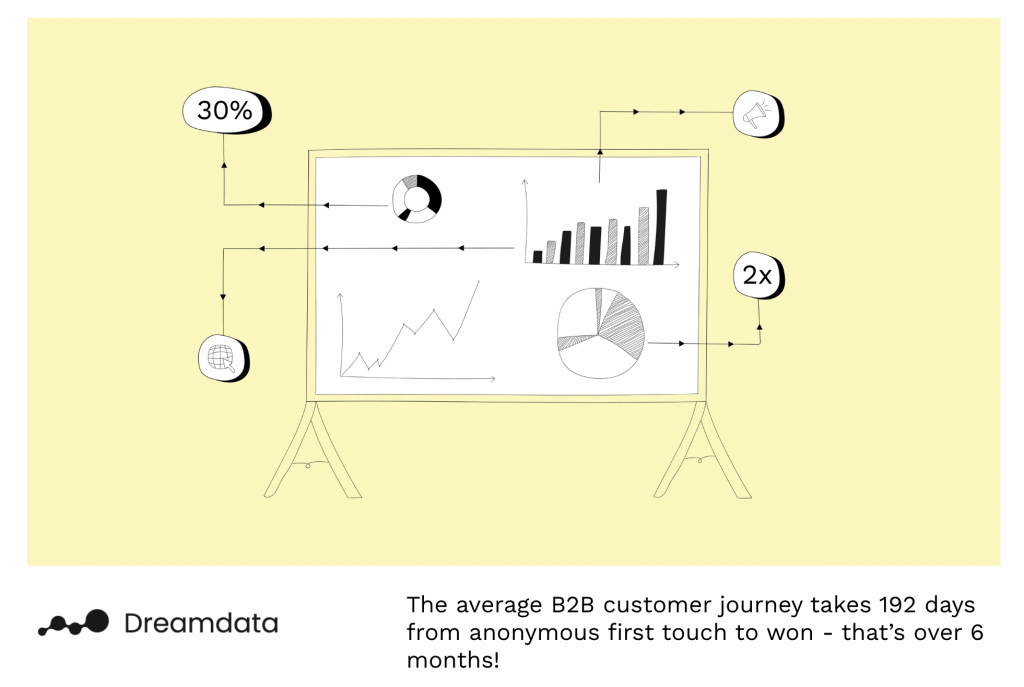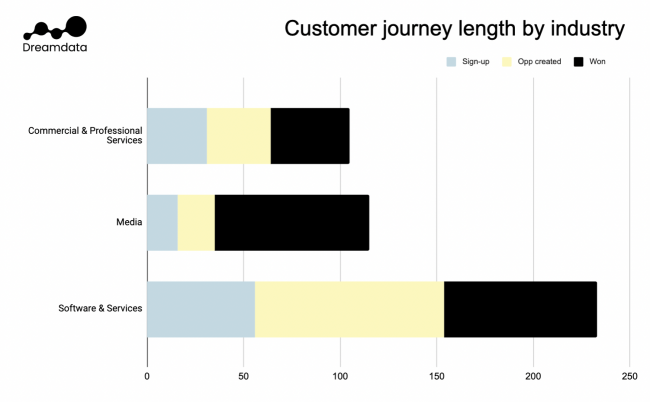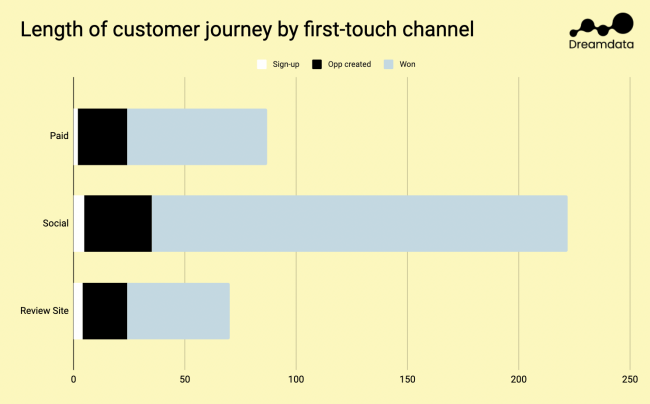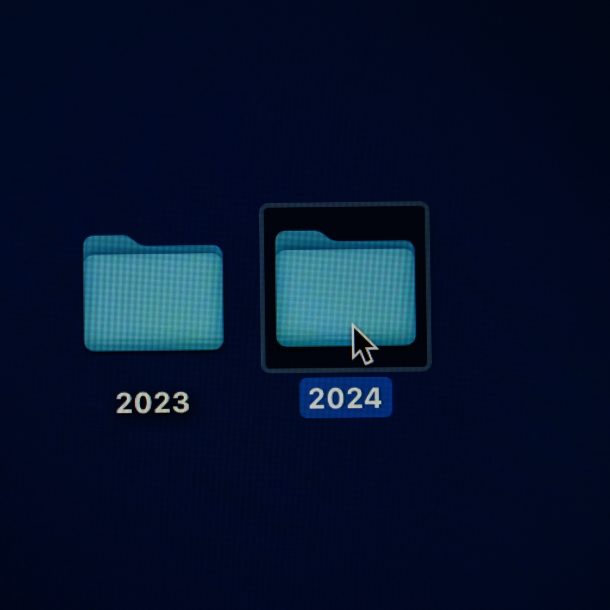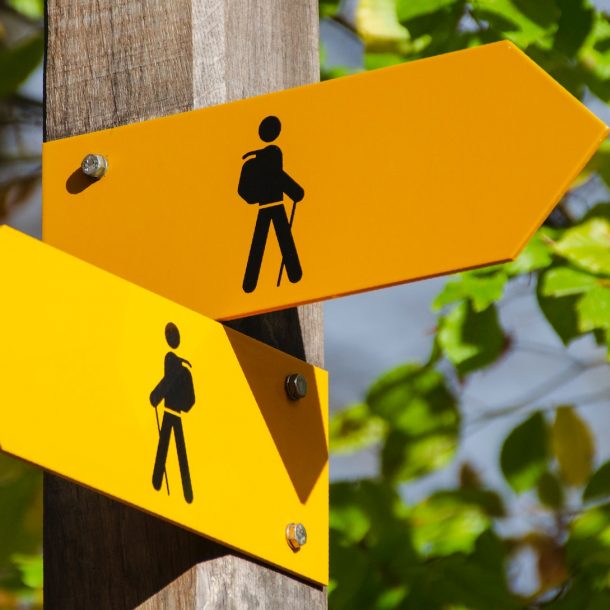The average B2B customer journey takes 192 days, dropping to 70 days when the first contact point is a review site. Social media is used primarily by customers who are not in-market and who need more time to close a deal.
A new report by the revenue-attribution software provider Dreamdata shares several B2B go-to-market benchmarks using data aggregated by their platform from 400 accounts.
Time-to-revenue is helpful to plan and forecast revenue, as well as to understand the time needed to run marketing experiments.
This metric differs considerably between industries. For example, customer journeys of B2B SaaS companies are twice longer as B2B media companies or commercial & professional service providers.
The prospect’s company size also matters as large B2B companies (>250 employees) take 40% longer to finalise purchases. Moreover, small B2B companies are the fastest to move from the first touchpoint to the sign-up/demo, but also the slowest to move through the opportunity-creation stage. This implies they need more nurturing after being qualified as an opportunity than in larger—likely, more established—businesses.
On average, there are 31 touchpoints in the customer journey leading to a purchase. And all B2B companies have an average of 2.0‒2.4—depending on their size—stakeholders who influence the buying process.
How does the first-touch channel influence the B2B customer journey later on? It turns out that journeys that begin at review sites are much shorter. They take 70 days—a 64% drop versus the average of 192 days—for all channels.
Similarly, a journey starting through a paid channel is 55% shorter than the average.
Most likely, the social channel is used primarily by customers who are not in-market and who, thus, need more time to close a deal. Paid channels and review aggregators are preferred by visitors who are in the market and have a higher readiness to buy.
It should not come as a surprise that reviews matter a lot to customers. This is similar to the B2C space where expensive purchases are preceded by seeking advice from their personal network and online reviews. B2B purchases are no different. So, instead of posting yet another LinkedIn update, B2B marketers are better off encouraging users to post reviews—effectively shortening that customer journey.







